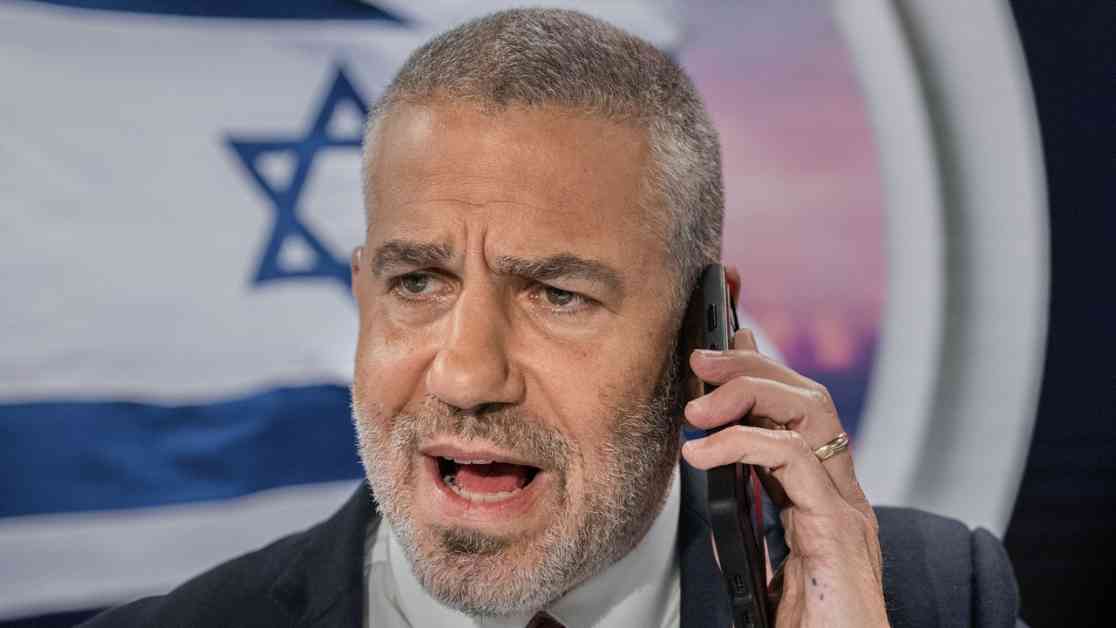Uncovering Netanyahu’s Influence on Media: A Closer Look at Political Messaging
On a fateful night during the U.S. Presidential election, Yinon Magal, the charismatic host of Israel’s Channel 14 talk show, made a bold statement by sporting a “TRUMP 2024” baseball cap. As the studio audience erupted with laughter, a father and son duo sitting near me snickered, caught on camera for posterity. This seemingly innocuous moment set the stage for a deeper dive into the scandalous world of Israeli politics.
Netanyahu’s Political Maneuvering
The heart of the show was a political bombshell involving Prime Minister Benjamin Netanyahu. Earlier that evening, Netanyahu had controversially dismissed his defense minister, Yoav Gallant, over their differing views on Israel’s prosecution of the war in Gaza. Gallant claimed the real reason was political, as he had refused to support a law exempting yeshiva students from military service—a move seen as pandering to ultra-Orthodox politicians crucial to Netanyahu’s coalition.
The Rise of “The Patriots”
Every weeknight, Magal’s show, “The Patriots,” brings together hard-right media personalities, formerly liberal nationalists, and Likud Party politicians to defend Netanyahu’s increasingly right-wing agenda. Magal, a key figure in the Bibi-ist movement, spares no one in his mission to champion the Prime Minister’s cause, even as Israel faces political turmoil, war, and international criticism.
The Unraveling Reality
Despite Netanyahu’s trial for corruption and allegations of seeking favorable media coverage, he remains in power, propped up by channels like 14 that thrive on supporting his narrative. The show’s unflinching loyalty to Netanyahu has sparked outrage, with critics accusing it of inciting violence and promoting war crimes through its inflammatory rhetoric.
A Personal Journey of Transformation
Magal’s own journey—from a disillusioned young man wandering in India to a controversial media figure entangled in scandal and politics—reveals a complex character shaped by personal struggles and professional ambition. His meteoric rise in Israeli media, from mainstream anchor to online news editor to political firebrand, mirrors the country’s shifting political landscape and the growing influence of right-wing ideologies.
As Magal navigates the tumultuous waters of Israeli politics, his personal and professional choices underscore the intricate dance between media, power, and public opinion. In a country torn between conflicting narratives and entrenched ideologies, he stands at the crossroads of journalism, entertainment, and political activism, shaping the discourse that defines Israel’s future. As the nation grapples with its past, present, and uncertain future, Magal’s story serves as a poignant reminder of the complexities and contradictions inherent in the pursuit of truth and power in the modern media landscape.












